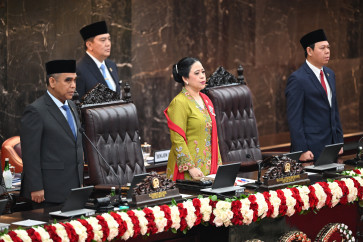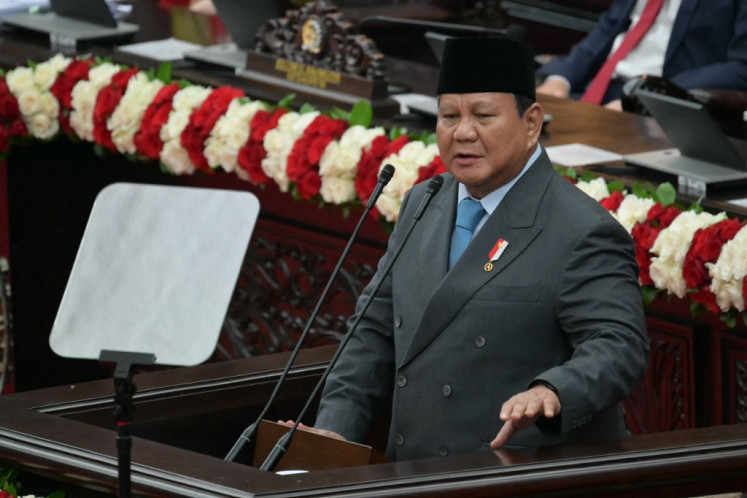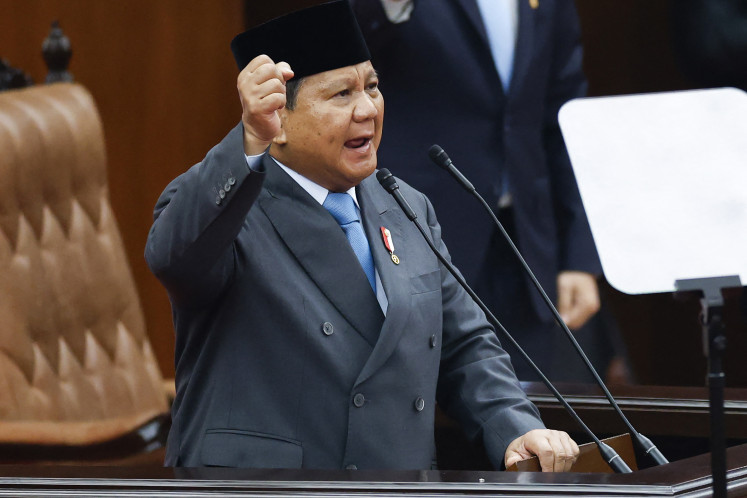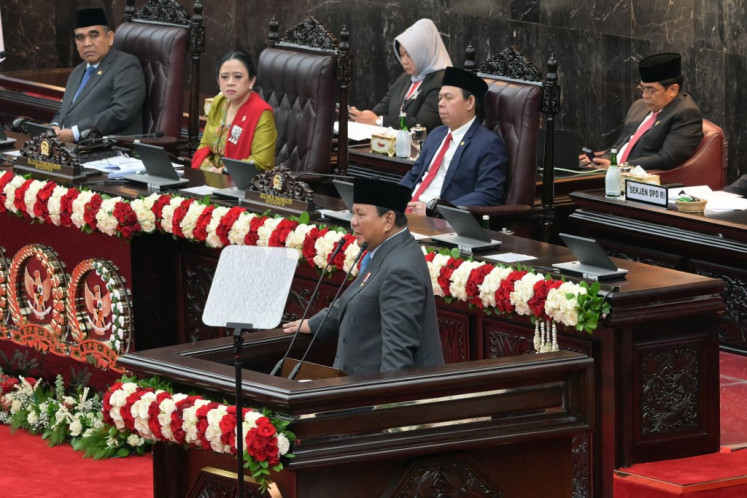Popular Reads
Top Results
Can't find what you're looking for?
View all search resultsPopular Reads
Top Results
Can't find what you're looking for?
View all search resultsAlms agencies change tack to attract middle class
Good works: This village near Sukabumi, West Java, has benefited from one of Dompet Dhuafaâs anti poverty programs, funded in part by zakat
Change text size
Gift Premium Articles
to Anyone
G
span class="caption">Good works: This village near Sukabumi, West Java, has benefited from one of Dompet Dhuafa's anti poverty programs, funded in part by zakat. Courtesy Dompet Dhufa
For the last several years, Jakarta resident Dewinta Puristia has been using ATMs to make regular zakat (alms) or infak (donation) payments to Bazis DKI, the city's alms agency.
The 28-year-old civil servant says Bazis DKI's electronic transfer option is convenient as she does not need to visit one of the agency's offices in person to offer alms, which is mandatory for Muslims, or the voluntary infak payments.
'With such an option, I can just walk to the nearest ATM whenever I'm ready,' Dewinta told The Jakarta Post recently.
Indonesia, which has the world's largest Muslim population, has seen significant growth in the number of local zakat collection funds in the past 12 years ' something that has been attributed to the nation's growing middle class.
The government-sanctioned National Alms Agency (Baznas), which keeps financial records for regional Bazis and private alms agencies, for example, reported that annual zakat collections nationwide had increased 46 times, from Rp 68.4 billion (US$5.3 million) in 2002 to Rp 3.2 trillion last year.
Meanwhile, the Boston Consulting Group predicted in 2013 that Indonesia's middle class and affluent consumers ' whose monthly spending on regular items exceeded Rp 2 million ' would almost double, from 74 million in 2012 to roughly 141 million by 2020.
Electronic payment facilities are one initiative that collection agencies have explored to make paying donations simpler.
In a recent interview, Baznas executive director Teten Kustiawan said more than 80 percent of zakat collected by the agency came from electronic transfers, such as Internet banking, mobile banking, direct debit and ATM transfers.
'These e-payment facilities have undoubtedly become the backbone of our zakat collection activities,' Teten said.
In 2013, Baznas collected Rp 50.7 billion, up 25 percent from Rp 40.4 billion the previous year.
The nation's two largest independent alms agencies, Dompet Dhuafa (DD) and Rumah Zakat (RZ), meanwhile, also said that around 80 percent of the zakat they've collected in recent years had been made through electronic payments.
While DD corporate secretary Salman Alfarisi lauded cashless transactions, he said it was important for alms agencies to offer custom services for those who preferred to hand over alms and donations in person.
Salman said that DD, for example, was offering a zakat and donation pick-up service in which DD representatives would visit people at home to calculate their zakat obligations.
'Our biggest [zakat] pick up so far came from a resident of Pondok Indah who paid Rp 50 million in zakat funds,' Salman said, referring to an upscale residential area in South Jakarta.
RZ CEO Nur Efendi echoed Salman, saying that his organization invited people to get directly involved in its zakat-funded social empowerment programs.
'Zakat payers, for instance, can join our empowerment programs as teachers or ambulance drivers. By letting them get involved in the programs, we want to make them feel the 'wow' experience in paying zakat,' Nur said.
Separately, Islamic finance expert Irfan Syauqi Beik praised the creative campaigns. However, the Bogor Institute of Agriculture (IPB) academic cautioned alms collection agencies to maintain public trust by upholding financial transparency and providing zakat payers with regular updates on their alms-funded programs.
'In the end, the best way to encourage Indonesian middle-class Muslims to pay alms is by helping them visualize the impact of their zakat funds on society,' he said.










